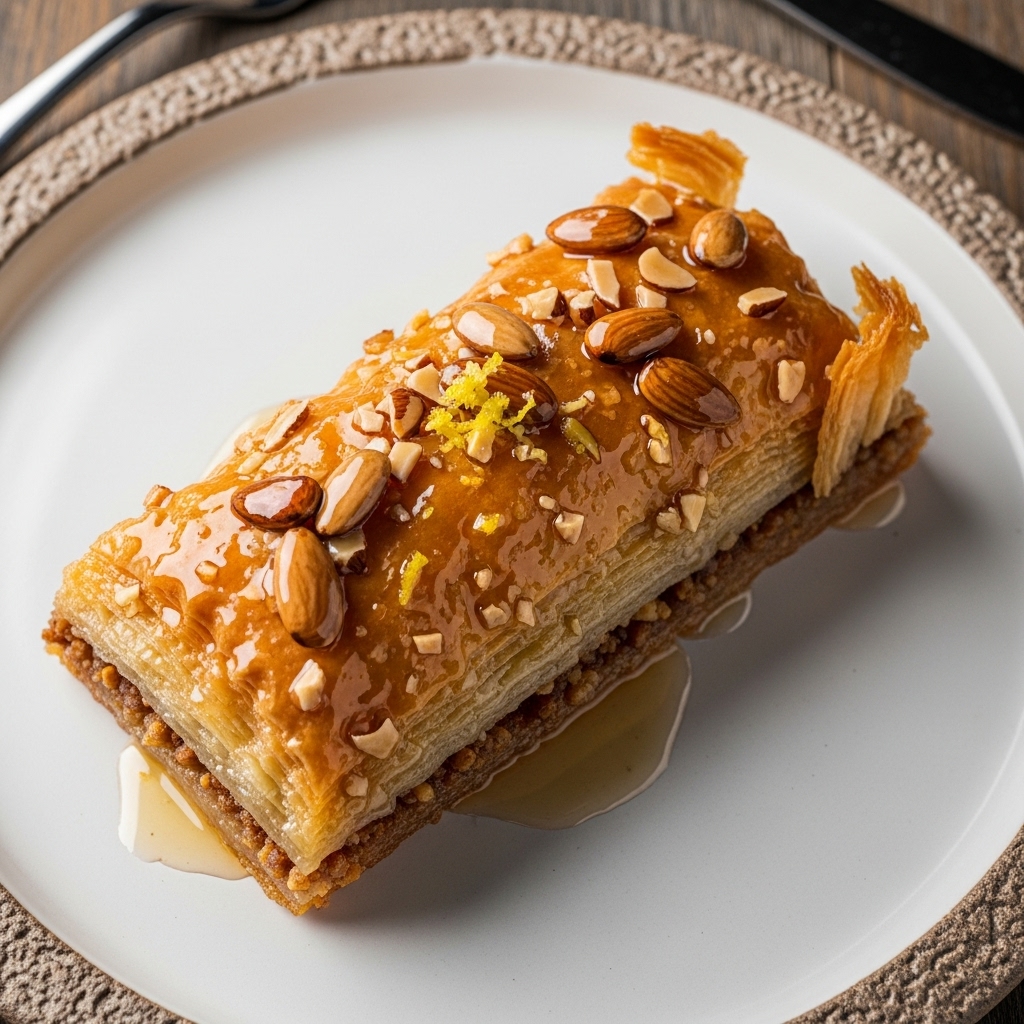
Greek Lemon Baklava with Almonds & Honey – Gluten-Free
A flavorful greek dessert perfect for gluten-free eaters - made for visual appeal and culinary depth.
Allergens
Contains no common allergens unless specified.
Ingredients
- 12 sheets of Gluten
- Free Phyllo Dough, thawed 1 cup Unsalted Butter, melted 2 cups Almonds, finely chopped 1 1/4 cups Granulated Sugar, divided Zest and Juice of 3 Lemons 1 teaspoon Ground Cinnamon 1/4 teaspoon Ground Nutmeg 1 cup Honey 1/2 cup Water 1/4 teaspoon Pistachios, for garnish (optional)
Instructions
- Preheat oven to 350°F (175°C).
- Brush a 9x13 inch baking dish with some melted butter.
- In a bowl, combine almonds, 1 cup sugar, lemon zest, cinnamon, and nutmeg. Mix well and set aside.
- Unroll the phyllo dough carefully and cover it with a damp cloth to prevent drying.
- Place one sheet of phyllo in the baking dish and brush lightly with butter. Repeat for 8 more sheets, creating layers.
- Sprinkle half of the almond mixture evenly over the phyllo layers. Top with another layer of 8 buttered phyllo sheets, brushing each with butter.
- Sprinkle the remaining almond mixture over the top layer of phyllo.
- Cut the baklava into 30 equal sized pieces and bake for 40 minutes or until golden brown.
- While baking, combine honey, lemon juice, and water in a saucepan. Bring to a boil and cook for 5 minutes.
- Remove the baklava from the oven and let it cool for 5 minutes.
- Pour the honey mixture evenly over the warm baklava. Let it stand until completely cooled.
- Serve chilled, garnished with pistachios if desired.
Chef’s Insight
The key to this recipe is layering the phyllo sheets and almond mixture, which creates the perfect balance of textures and flavors. Don't skimp on the butter, as it adds richness to the layers.
Notes
The honey syrup must be poured while the baklava is still warm to ensure proper absorption.
